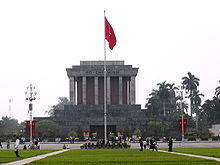Incidentally:
“In Finland the swastika was used as the official national marking of the Finnish Defense Forces between 1918 and 1945 and also of the Finnish Air Force, anti-aircraft troops as a part of the air force, and tank troops at that time.” Wikipedia.
I had never heard of that before. I wonder if they stop using it after the war.
I can’t tell you how many times, as a kid, I heard my friends and adults speak with awe about the Sherman tank. The Sherman tank won the war. The Sherman tank scared the bejeebers out of the Nazis. Oh my God, it’s a Sherman tank! Run!
If you were a soldier and your commanding officer told you to get into a Sherman tank and get out there and take on those Panthers and Tigers like a good boy — you’d have a right to take a court martial instead. Especially after you found out that your commanding officers, when offered a choice between the Sherman and the heavier M26 Pershing, chose the Sherman. We don’t need a bigger tank. Too expensive, and too heavy! No no, my boys will be just fine in one of those cute little Shermans.
In one battle, 17 of 18 Shermans were knocked out in the first twenty minutes.
The British called them “Ronsons”. Ronson was a lighter company which advertised “lights first time, every time”.
Would Patton have gotten into a Sherman knowing that a Panther was waiting around the corner?
I don’t know where the myths came from. Well, yes I do. There were a lot of generals and manufacturers and corporate executives and politicians invested in the Sherman. And there was no doubt about the fact that they were able to produce a lot of them: 50,000 by the end of the war. (The Soviets were producing about 1,500 T34’s a month at peak production).
The Sherman was lightly armored and fast. The speed didn’t matter: the German Tiger had an 80 or 90% kill rate against the Shermans. A Sherman could only take out a Tiger tank if six or seven of them attacked at the same time and one of them managed to get behind the Tiger. And even then, he better be quick: the other five would have been destroyed by then.
And let’s get to the truth: certain American generals bragging about the maneuverability and speed of the tank was like your best friend saying that the blind date he is trying to arrange is really quite smart and talented. In actual testing, both the allies and the Germans discovered that the Panther and Tiger tanks turned faster, climbed better, and were less likely to get bogged down in the mud.
The Russians weren’t as stupid. By 1943, they were at work on a larger tank to take on the Panthers and Tigers: the T-34, which performed admirably against the Germans, notably in the Battle of Kursk.
General George S. Patton championed the Sherman…. until the battle of Arracourt, a victory for the allies of no strategic importance. The fog and air supremacy favored the allies but it was also clear that the Germans were still capable of formidable opposition with their Panthers. Patton started asking for the Pershings.
The Pershing, astonishingly, employed the same engine as the much lighter Sherman. Who was in charge of this? Who made this decision? Let’s increase the weight by 50% but keep the same engine? The M26 Pershing, not surprisingly, like the German Tigers, tended to break down a lot.
Towards the end of this video, live footage of a battle between a Sherman and a Panzer, and then an M26 Pershing and the same Panzer, dramatize, in grim fashion, the reality. Would you feel safe in a tank?
Does size matter:
| Sherman | 30 tons. |
| Panther (Panzerkampfwagen V) | 46 tons |
| M26 Pershing | 46 tons. |
| Tiger II | 70 tons. |
| T34 (Soviets) | 26 tons. |



